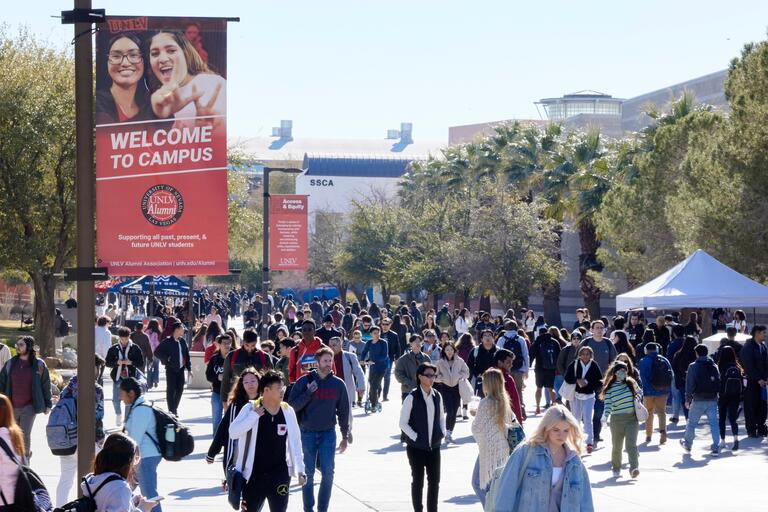After declaring a state of emergency for Nevada on March 12, Gov. Steve Sisolak convened a taskforce on March 14 to help advise him on the scientific aspects of the coronavirus pandemic. Joining the five-member panel was Brian Labus, assistant professor in the School of Public Health.
By March 17, Sisolak had ordered the closure of Nevada's non-essential businesses. All of those difficult decisions in the days leading up to it were informed by the expertise of members of the panel, which also includes Dr. Trudy Larson, UNR’s dean of community health sciences; Dr. Ihsan Azzam, Nevada's chief medical officer; Dr. Paul Sierzenski, chief medical officer of the Renown Health System; and Dr. Shadaba Asad, University Medical Center's infectious disease director Shadaba Asad.
"The challenge is that public health really sits at the intersection of science and politics," Labus said. "There are some things that may be wonderful scientifically, but are terrible ideas to implement in your community. The challenge for us is to give the best information we can to allow the best decision to occur."
Since convening, the task force, led by Azzam, has been convening on conference calls, sometimes daily in full, sometimes on an as-needed basis, to help answer questions that the governor may pose.
In addition to helping guide the state's decisions, Labus serves on the university's coronavirus panel, and is preparing to help the Southern Nevada Health District, as well.
"I worked at the health district for 15 years, so I do get random calls from friends with questions about different things, but we're going to try to move something more formal," Labus said. "If the health district staff get overwhelmed, we are a resource for them in the community. This will be the first time we've done it, but I'm looking forward to this collaboration between UNLV and the health district."
Likewise, Labus serves as a valuable community resource connecting the university to journalists, locally, nationally, and even internationally.
For a public health instructor, this moment of crisis is also a teaching opportunity, albeit an unwelcome one. The 2009 swine flu episode was the last pandemic we've faced, but Labus says that disease proved to be a more mild strain of flu than was anticipated.
The novel coronavirus, on the other hand, Labus calls the most serious infectious disease threat we've faced as a nation in decades.
"This is an opportunity to show public health students how things really happen. I teach a graduate infectious disease epidemiology class. It's the perfect way to explain some of the classroom concepts in terms of how they're being applied in the real world. We can wind up with a lot of sick people — and if we don't do things right — a lot of deaths."


